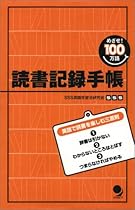英語でのビジネス場面で良い印象を与えることについて - Making a Good First Impression
 ビジネス場面で初めて人に会う時、どういうマナーが必要になるのか。
ビジネス場面で初めて人に会う時、どういうマナーが必要になるのか。
日本人同士、初めて会う時に決っている流れがあるので、それを覚えればスムーズに行く可能性が上がる。英語でビジネスを行う時も決っている流れがある。
例えば、紹介する時や紹介される時に、どういう点に気を付けたほうが良いのか。
英語が母国語の人、特に「北米の人」に初めて会う時は、四つの点に注意が必要だ。
4 Points for Making a Good Impression
良い印象を与えるための四つのポイント
- Smile!
笑顔 - Make Eye Contact
目を見る - Have Good Posture
正しい姿勢 - Give a firm handshake
正しい握手
It says that you are truly happy to meet them, whereas a serious expression can give an impression of unfriendliness.
People who do not look you in the eye show that they either lack self-confidence or are not trustworthy.
Having good posture is also important.
Standing up straight shows both confidence and respect to the person you are meeting.
ビジネス場面で北米の人と初めて会う時に
米国文化では暖かい微笑みを見せることによって、良い印象を与えることが出来る。
本当に「会えて嬉しい」という気持ちを表情で表し、逆に真剣な顔は冷たい印象を与えてしまう。
目を合わせてくれない人は、自信不足かそれとも信頼できない人に思われる。
正しい姿勢も大切だ。
真っ直ぐな姿勢で立つことは、自信を持っているということと、相手に関心を持っているということを表す。
Your handshake also affects other's impression of you.
For example, if your handshake is weak, they might think that you have a weak character.
If your handshake is strong, they will think you are confident.
If your handshake is too strong, they will think you are overbearing or too aggressive.
Therefore your handshake should be not too weak, not too strong, but firm.
握手の仕方も印象に影響する。
握手が弱かったら、意思が弱い人に思われるかもしれない。
ちょうど良い強さであれば、自信がある人に思われる。
強すぎたら、もしかして強引な人と思われるかもしれない。
The Proper Handshake
正しい握手の仕方
- Extend your hand so that the "V" or web between the thumb and index fingers meet
お互いの、親指と人差し指の間の『v字』になっているところをあわせる - Wrap your fingers around the other person's fingers while keeping your own together
相手の人差し指から小指までの4本の指を、自分の手で包むように握る - When you grip, squeeze firmly and hold while...
握った瞬間に少しだけギュッと力をこめてそのまま... - Shaking up and down two to three times then squeeze a little more to signal the end of the shake
2,3回上下に小さく振り、そして最後に小さくギュッと握れば終わりの合図となる
Hint: If you have sweaty hands, wipe it before shaking
ヒント:もしも手のひらが汗でぬれていたらさっと水気を拭いておく





